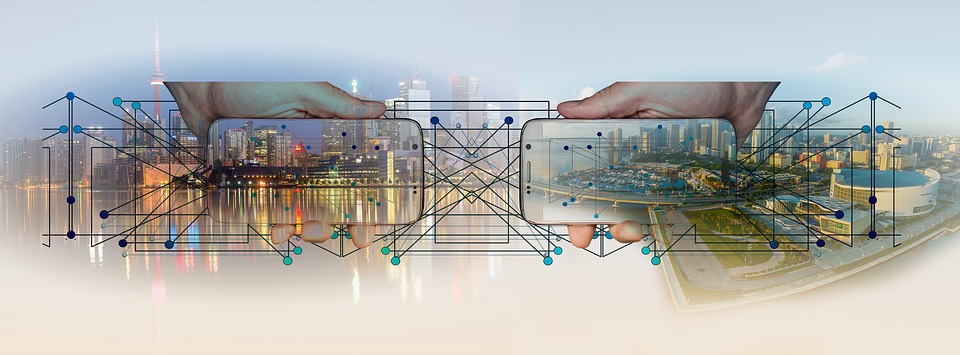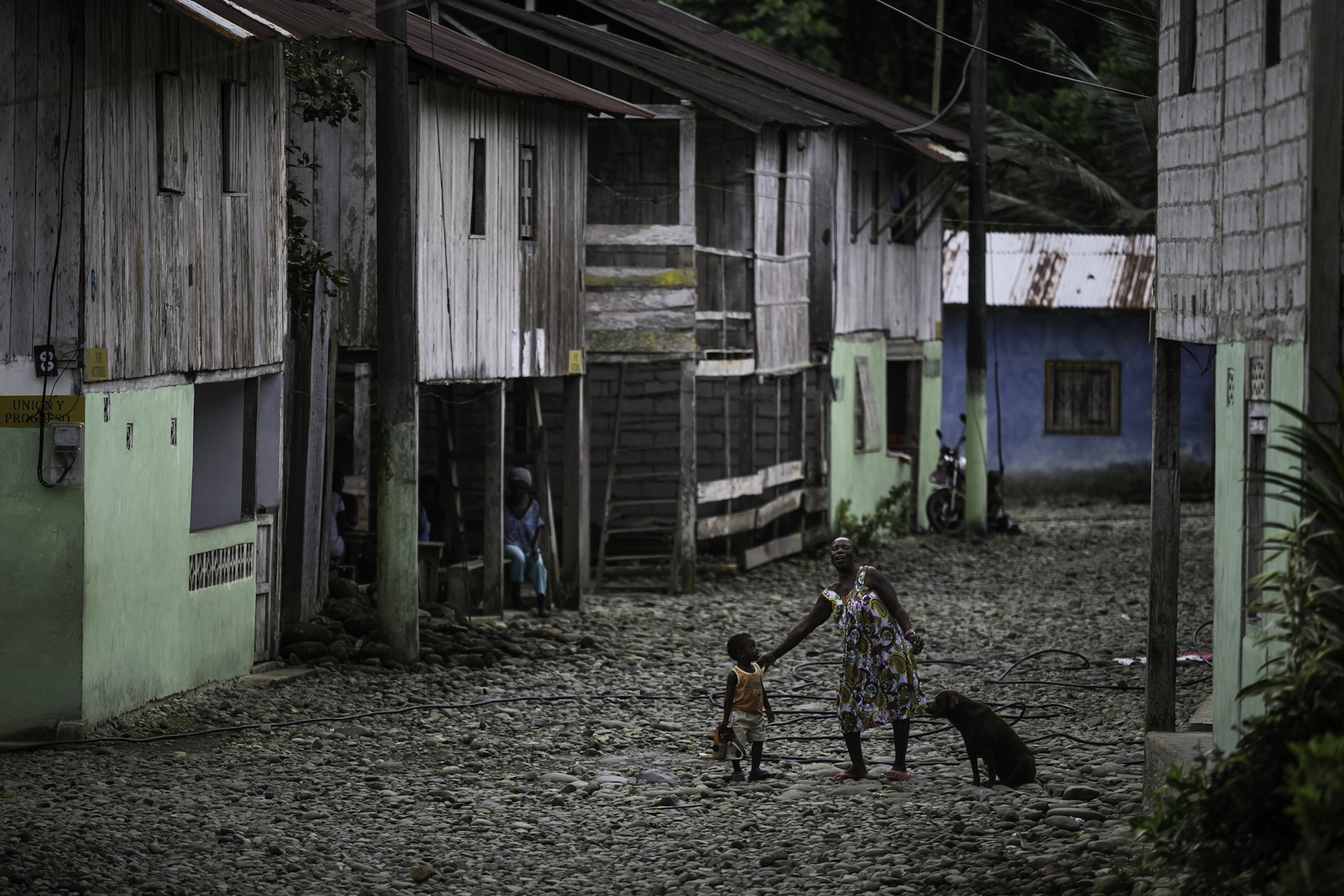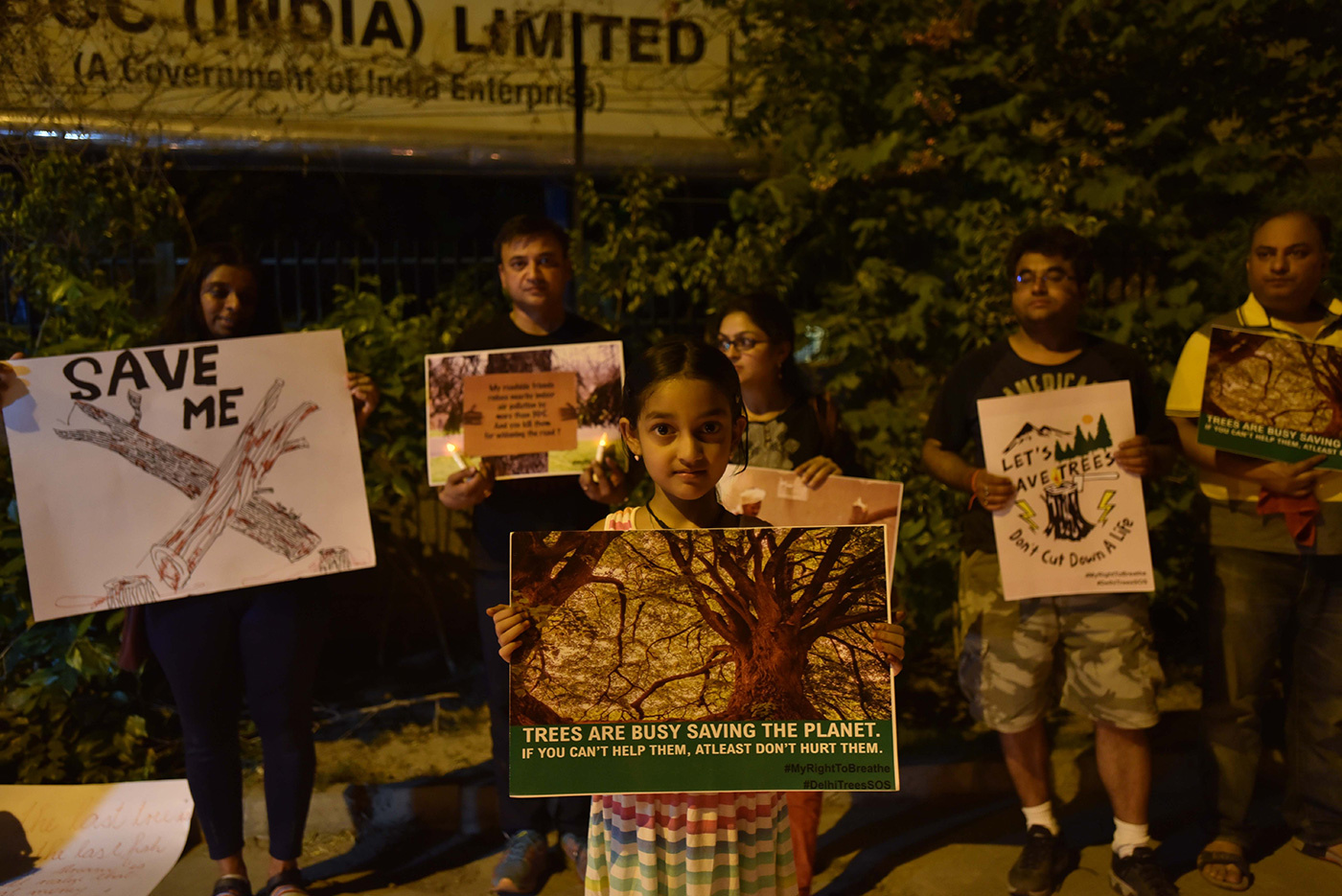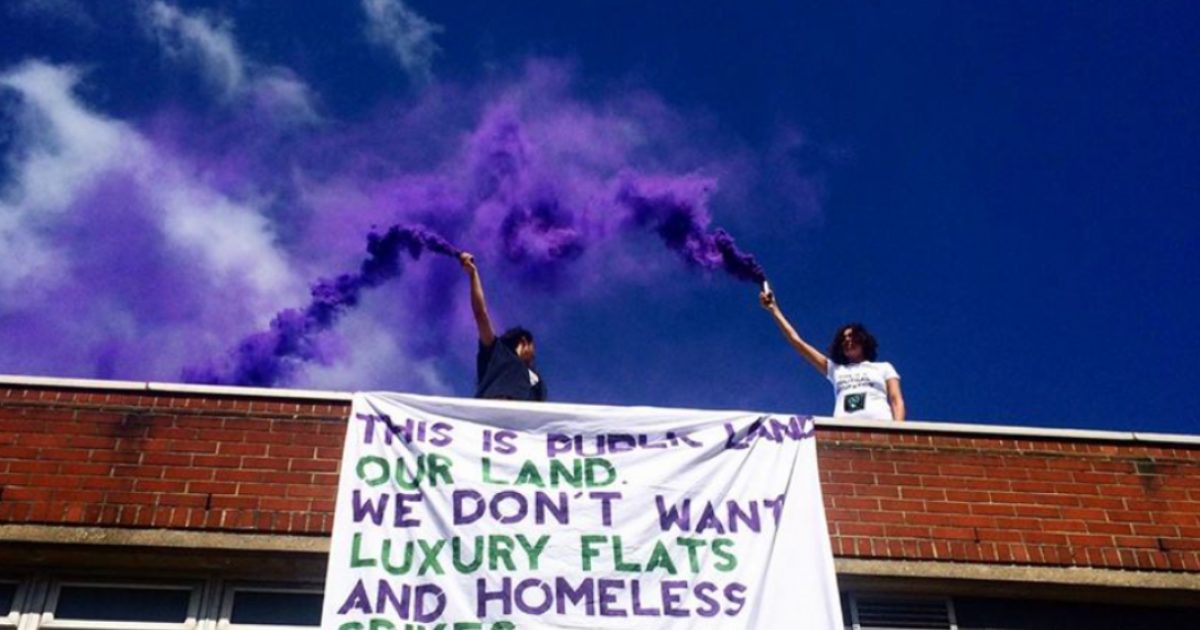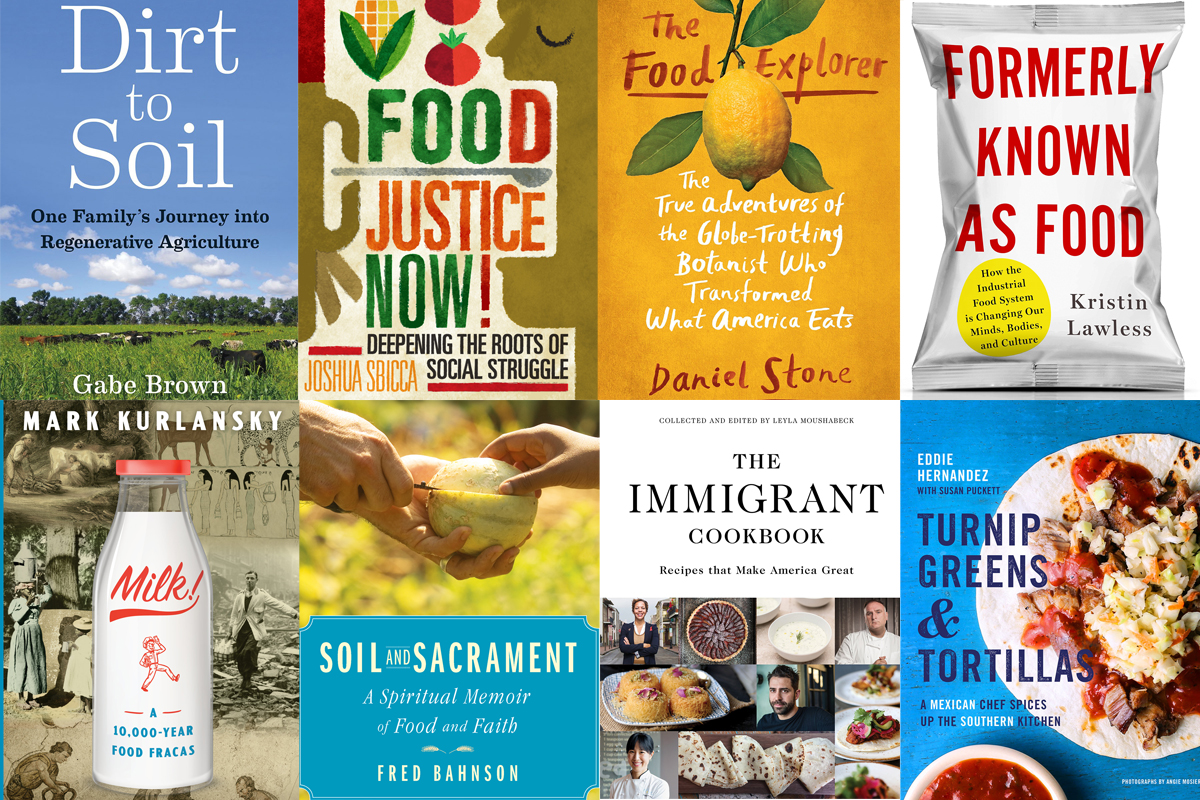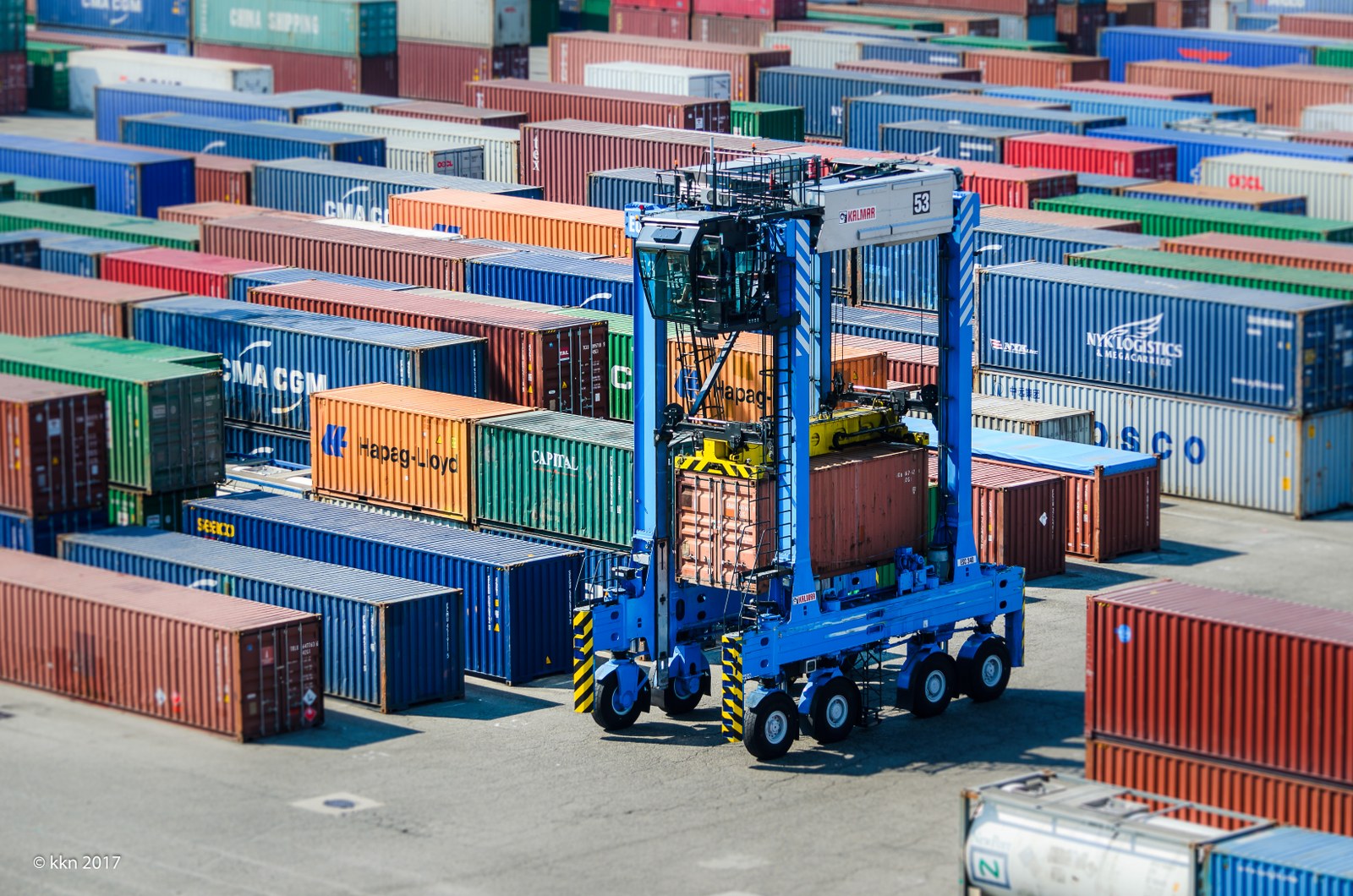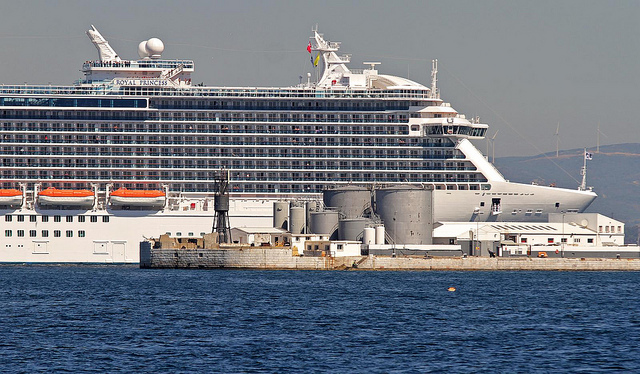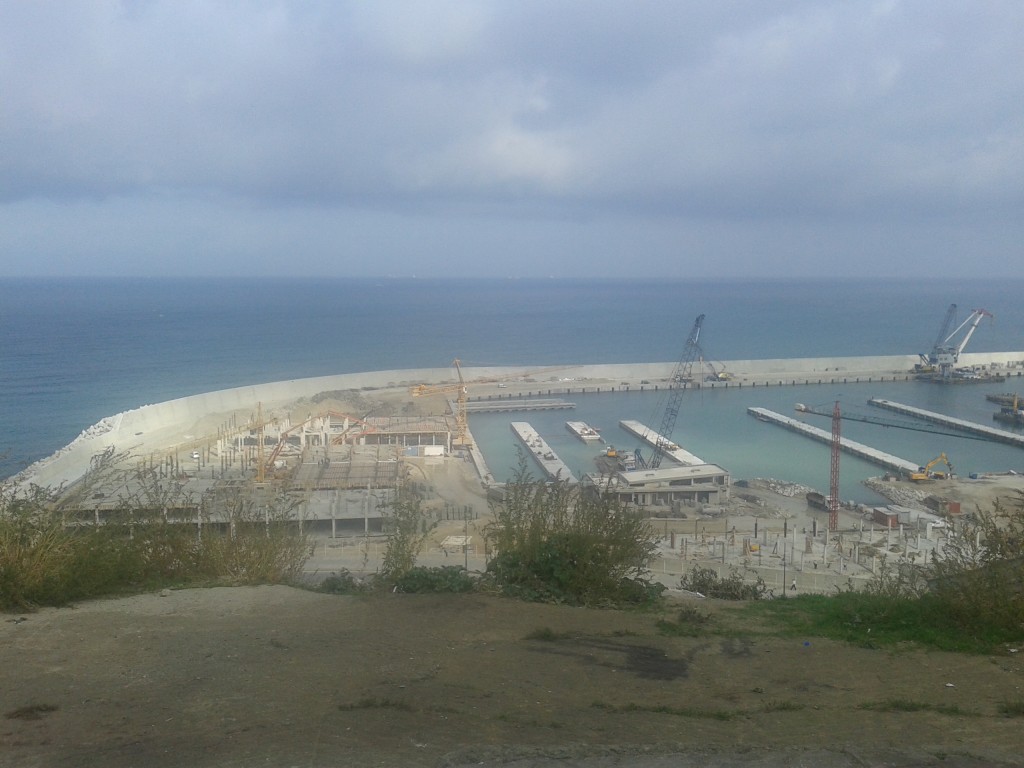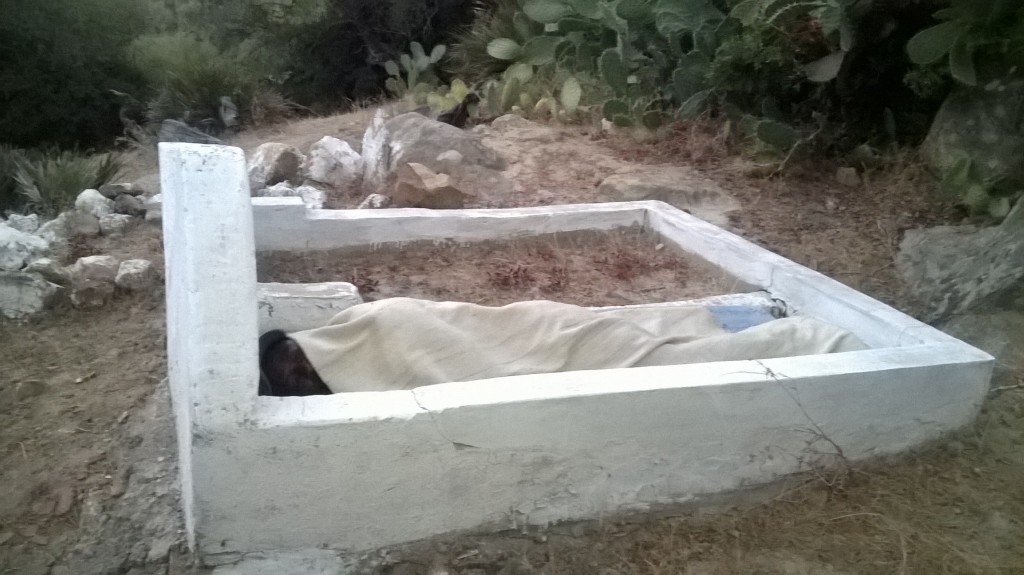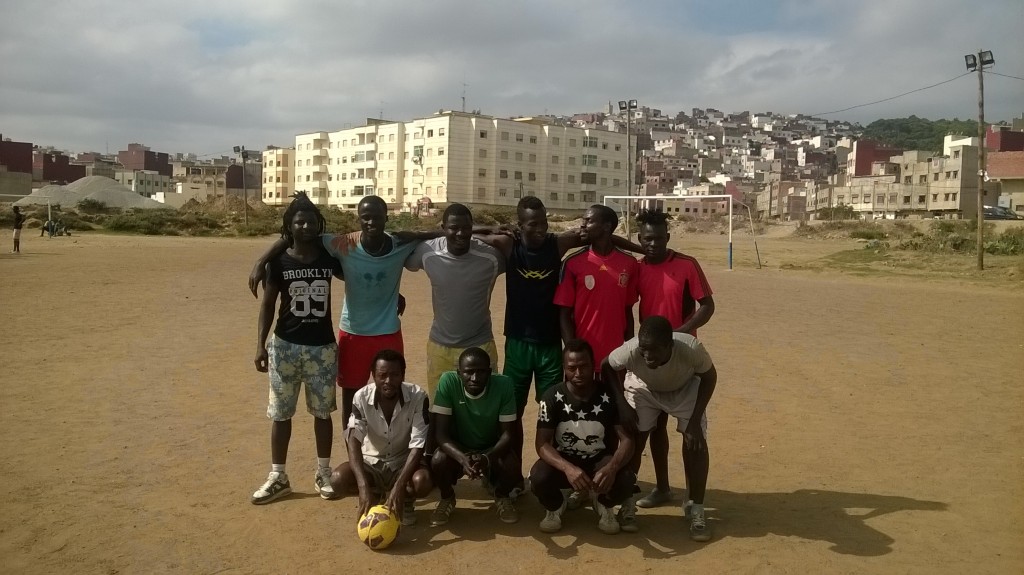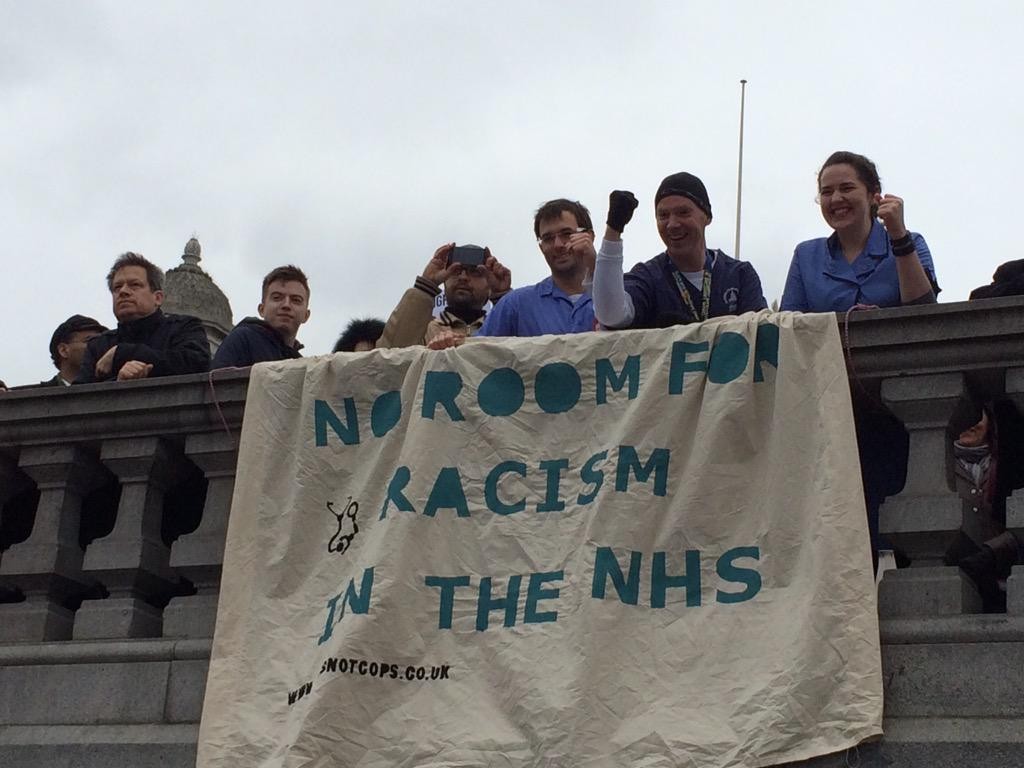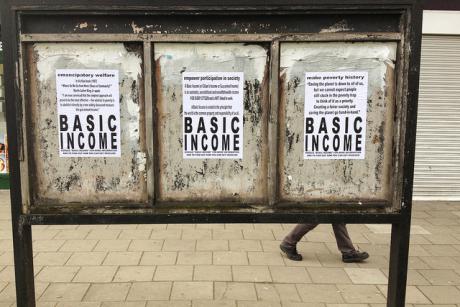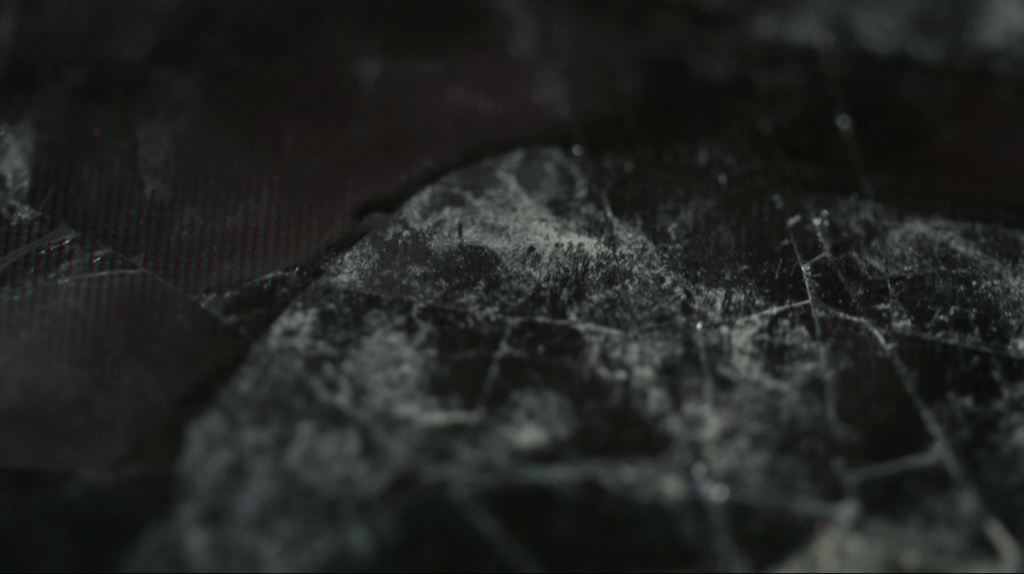
by Sophie Hoyle
I scanned the horizon—the faint outlines of hills in the dusk, above the rising waters—trying to focus, to concentrate. I fixed my gaze on a point in the near distance: a foamy scum had formed at the edges of the new outline of the river. It had become black, full of silt and debris from the land and buildings slowly subsiding into it. The swelling waters had easily shot over the Thames Barrier, and it still grew and sank with the tides, sometimes revealing the wrecks of car frames, broken fences and scattered bricks at its lowest levels.
I felt a hand softly steadying my forearm, and a lulling voice: ‘now, take a deep breath…’
*
Previously, we were hyperconnected—the flicker of screens waking up, eyes re-adjusting, then scrolling through information, piecing together what was happening to my family in different time zones of Beirut, Cairo, and friends in Athens. The background murmur of news from the wider world was reassuring, but it also made me keenly aware of being hyper-localised—stuck in one place, wedged in behind the computer desk, simmering in anxiety. Until I panic-bought a flight to go over and try to do something, however small.
I wanted to reach into the simulacra of high-definition images of people herded behind militarised borders; I wanted to be a counter-response to the states that were withdrawing and tightening, shrinking-themselves-small in defence.
My cousin Aziz seemed confused as to what help I could really be to the surge of refugees entering the Beqaa Valley, seeing as I wasn’t a doctor and could only communicate in broken Arabic. I had a sincere, but possibly misguided, sense of urgency. I wanted to reach into the simulacra of high-definition images of people herded behind militarised borders; I wanted to be a counter-response to the states that were withdrawing and tightening, shrinking-themselves-small in defence.
However, after I arrived, the British Embassy issued a warning not to enter the region after fights broke out between factions in the camps, and aid workers had got caught up in-between. So, I waited in the apartment in Beirut for more information, hemmed in by the mountains, the sprawl and the heavy air punctuated by clusters of beeps from below. I could see across the piles of garbage in Mar Mikhael to the new buildings with double-glazing and air-conditioning, left empty after their owners from the UAE returned back home. The sticky juice had saturated all permeable surfaces, and the litter that was swept into the sea had started to return. It piled up until it spilled over into even the private beaches with sea walls and concrete tetrapod breakwaters, and had to be removed each morning before they opened. Even if you didn’t have to wade through the festering rubbish directly, people were getting worried about the toxins leaking into the groundwater and the fish that people consumed caught from the sea. The price of bottled water had increased sharply, with people constantly refilling their tanks on the roofs, which started to evaporate after only a few hours. The random power-cuts meant I had to re-shift my workplace to somewhere with a generator, a micro-scale manifestation of the things that were possible-but just-out-of-reach. After searching the backstreets with a fellow student and journalist in the same apartment building also looking for Wifi, we finally found a cafe ready to capitalise on our addiction to connectivity. After scouring for networks, I managed to book a flight and re-routed my trip to Lesvos.
There were no official signposts as the situation was always changing, and no loudspeaker announcements other than the Greek police telling the crowds to push back.
People queued for days to register at the Moria camp, and even slept there overnight to hold their place, shivering in too-thin sleeping bags. Some had come overland as far as from Somalia and Pakistan, traversing the mountains of Iran and Turkey, soaked from clambering down from the boats onto the pebble shores. It was strange to see it up-close, in the always-hurried interactions at night: in the dark, dipping between torn-down fences, pitched tents and burning plastic. Other than death, starvation, or hypothermia, it seemed that the lack of information was the clincher: not knowing how long they’d be there, where they’d be sent next, and who gets chosen or why. There were no official signposts as the situation was always changing, and no loudspeaker announcements other than the Greek police telling the crowds to push back. I only saw once a piece of card tied to the razor-wire fences with the categories ‘Iran, Iraq, Syria, Pakistan’ hand-scrawled in English, and then in their respective languages; but the red ink started to spread and splinter in the torrential rain.
*
We’re not sure how long we’d spent underground at that point. We had crowbarred up the creaking floorboards of the living room, and piled up old mattresses and turned-over tables in an attempt to seal ourselves in. Compulsively clicking through live news updates of world leaders threatening imminent attacks fuelled a moment of paranoia in which I’d purchased a small amount of foil blankets, 5 litre bottles of water and canned food. They’d been kept at the back of my bedroom cupboard, obscured by clothes on hangers, embarrassed at what my housemates might think.
There was a small sense of relief at having thought ahead; though, now, in the dark, in what must have been three days after the torch batteries gave out, we realised exactly how little we knew. No matter how much we tried to insulate the space, there was a far-reaching dampness pervading this area beneath the house: a gap, a link to the outside. Sheer terror had blocked all rational decision-making immediately after we heard the announcement, so we’d rushed and panicked, and were stuck underneath without a can-opener. We stabbed open cans with a pair of old scissors and scooped the cold contents out with our hands. The three of us could only lie horizontally, raising our heads a little before hitting or snagging them, shuffling along and crawling to the bin bags in the farthest corner, which was our makeshift bathroom.
It was hard to know diurnal the rhythms in the darkness, how many days or weeks had passed, but the stench was becoming unbearable.
We hesitated.
We tensely debated the options of emerging: Who would go first? What had even happened? If there was radiation, an outfall, how would we be able to discern the invisible symptoms, the chemical miasma?
Eventually, somehow, we made the decision.
Did they all have pre-paid bunkers? The ones we’d read about in newspaper columns, that elites had secured amidst threats of a social uprising; though these were in the back pages, buried deep under the fanfare of celebrity scandal and political controversies.
When we emerged, we felt ridiculous for having even tried to do anything at all. After the initial wave of relief that we were still alive and that our belongings were intact, we tentatively wandered through the shells of houses, mostly empty, cars gone. Did they all have pre-paid bunkers? The ones we’d read about in newspaper columns, that elites had secured amidst threats of a social uprising; though these were in the back pages, buried deep under the fanfare of celebrity scandal and political controversies. We rode around on bikes to scout out what was happening, but were met with days of silence.
I thought I was used to watching known worlds and delicately constructed identities collapse. Through infrequent childhood visits to extended family in the near-mythical homeland. It was built-up and given such emphasis and importance; then, simultaneously, over a lifetime, we watched it fall apart from afar: explosions tearing through homes and districts, mediated and abstract. I remember glancing to the side to see the suppressed emotions of family members staring tensely at the screen as the British newsreader gave a terse summary of events. The anticipation of crackling phone-lines checking if they were still alive, —alhamdilluh— sighs of relief; but then agitations and gesticulations as if it were somehow their fault for incidentally living nearby the site of the bomb. Tracing the routes of spectacular wide-angle newspaper shots of places we’d once been, now obliterated. A slow grief.
Eventually, we heard some sirens. We approached cautiously with an ingrained distrust of authority, but also with hope, possibly of rescue, or at the very least, information. They didn’t have much. We’d caught up with the hazard cleaning truck as it was turning the corner to leave the neighbourhood. They’d been painting large black crosses on most of the houses with a thin, dripping paint, though they couldn’t reveal what this was for. They seemed surprised and impressed at our staying put; though as they stood there in biohazard suits replete with breathing apparatus and chemical resistant boots, we looked down at our sullied clothes and felt ridiculous. They mentioned that there was a help centre uphill of where south Croydon used to be. It was in the old London Biggin Hill airport which until then, I was unaware had even existed.
We went back to the house to look at what we could take, packing any remaining essential food, safety blankets, and thermals. I went back into my room, and saw an olive tree wooden bowl that my grandmother had taken across the border, fretting and worrying that they’d be seized by customs. It had made it across continents and decades, and was now sitting on my desk. It was positioned next to palm tree leaves, an ornamental camel figurine and an ankh necklace, the accretions of multiple lives over the years; but they all had to be left behind this time. I settled on taking a small cluster of photos that didn’t take up as much space, and got up to head out.
We followed the half-memorised directions, and were co-directed by other people that we met along the way. Some were better equipped, driving cars with stacks of belongings on the roof bound together with rope and cords, with some chair legs and pot handles poking out. One was a black van with a peeling plastic Zipcar sticker, either taken by the person currently renting it, or stolen from the street. Others were walking by foot, starved out from their hiding places.
We arrived at a site that we presumed to be the help centre, where people gathered in the flat, grassy areas of the take-off strip, now full of tents. New ones were being constructed, despite the strong winds leaving the thick tarpaulin sheets flapping and gasping in turns. The portaloos overflowed, uncontained by the shallow channels carved out to serve as makeshift drainage. The remaining cars were stuck in the mud, tracks gouged out and deepened by tires revving to leave.
We split to each join a different queue, where we stood for a few hours, each one hardly moving. We felt the disquiet growing, tensions spilling out into arguments, and looked up to see people shouting with a megaphone, not knowing how to handle the crowds, and looking more distressed than us. Someone was throwing small plastic containers off the back of a parked truck, many of which became stuck in the sludge. Inside were provisions: small packets of biscuits, cheese, shortbread, and some bottled water. It reminded me of primary school trips and packed lunches, the same herding of people with barks and exclamations to stand in line or hold hands to cross the road. It started to rain heavily and people dispersed back into the tents. They perched inside, necks tilted up at the skies, waiting until it ceased to start queuing again.
For the first week the queues remained orderly. There were people who’d waited years for referrals to doctors for life-saving treatments, to be rehoused to an accessible flat, or to get their asylum status granted: a patient tolerance with a quiet, hopeful desperation.
After the South Coastal Wall was built, numbers had dropped rapidly, and most people were sent to be processed on the Isle of Wight. To have made it to London means that they must have come far in the process of their application—near hope, but once again, out of reach.
There were many people in the queue that had been trying to register at the Croydon Immigration and Asylum Support Service (IASS), who were now two or three-times displaced. Though after the South Coastal Wall was built, numbers had dropped rapidly, and most people were sent to be processed on the Isle of Wight. To have made it to London means that they must have come far in the process of their application—near hope, but once again, out of reach. Their quiet acceptance was in contrast to the permanently-outraged middle classes, seemingly unused to inefficiency or disorganisation, and gesticulating and shouting with entitled demands. This was ignored by the bored youth, who made music by beat-boxing, or improvising instruments from discarded plastic water and oil drums.
Once every three days there was some hot food: a bland, anglicised curry. We couldn’t enter the kitchen, but from the small section I could see through the exit, it looked like those of homeless shelters and camps I’ve been in previously. These had giant metal pots, human-size sacks of lentils, whole crates of onions and garlic chopped and swept in and swirled with spoons requiring whole-body movements, steadying yourself on the sides of the large metal vats, at least a metre wide each way. Any food when cooked on such a large scale inevitably became reduced to the same consistency. We all slept in the largest tent, huddled on the floor, sleeping with our belongings tied round us and under our clothes, held close to our bodies as if in rigour mortis.
It took a few weeks of hearsay to figure out what the process might be. We were waiting to be accepted as refugees in Iceland, the only country left in the region with stable electricity from their geothermal resources, and the only place that would take UK citizens after many years of isolationist foreign policies since Brexit. I heard the same kind of statements that I had made to those newly arriving in Lesvos only a year before: ‘We don’t know exactly what’s happening… the situation is changing everyday… we’ll know later… we’re waiting for another aid delivery to arrive…’
Within the camp, a kind of self-sorting was occurring. Despite being stripped of a material base and all belongings, people moved towards others who were of a similar socioeconomic background, forming different niches. Somehow, the petite-bourgeoise politeness and niceties continued: a want of familiarity, a semblance of normality, the internalised body language and intonation. We caught the eyes of some squatters and ravers, who used the premise of talking to us about our bikes and our tools, among other signifiers that we may possibly be similar, if not the same. Over the months, once we’d built some basic trust, we were allowed into their discussions. We knew that some groups would be prioritised: the ill, families with young children… which none of us were. As supplies dwindled and tensions increased, they’d been considering moving farther out, to set up a community. Cynical, hardened, but also desperate, we went with them.
Soon after, the waters rose again, and all the camps had to move farther out, uphill, and re-settle.
Soon after, the waters rose again, and all the camps had to move farther out, uphill, and re-settle. I remember how we’d learned about the earlier settlers locating next to natural water sources in my primary school geography class, with pencil-shapes diagrammatically outlining the proximity of the shelter (round) to the river (parallel waving lines in blue). We built structures on elevations, slowly learning which ones would withstand the elements, aided by some anarcho-engineers who helped at the Calais Jungle before it was flattened. As a group of anarchists, squatters, artists and a nurse, we could mostly make and fix things ourselves. We had some basic knowledge of the woods we were surrounded by, and some basic medical supplies. We’d scavenged further necessities from the camp, and by sifting through the water when we forayed down to the new edge of the Thames.
Occasionally, we could still smell the back-wind. It was hard to stand the stench of the dispersed water becoming marshy with dead bodies, building remains, abandoned vehicles, and giant flocks of seagulls pecking at the slimed surfaces. It easily stretched across to the former-Netherlands, and sometimes the EU boats came with emergency supplies they’d been safeguarding in waterproof warehouses. They were equipped with solar panels, and things that looked clean, neat and technical. Though they were often mobbed, so now they just threw parcels off the sides, which bobbed along until they reached the shore of hysteric crowds.

*
We spent a lot of the time learning to wait. There was no longer an abundance of white-noise-images filling the gaps, the seconds were hanging, minutes turning into frustration. We had to double-back and go over old memories, to retrieve nostalgic go-to stories stuck in deeply sedimented neural pathways. Thinking about the boats reminded me of relaxation, leisure, holidays… things that were once within reach. How the clear, salty water had trickled underneath the hulls in the ports, the smell of sun-warmed concrete and tarmac, soft to stand on.
I read that veterinary scientists were slicing open the stomachs of dead camels they’d found by the roads, and had extracted from the slopping organs large balls of plastic debris.
I thought of my uncle who lived in Dubai, who I’d last seen during my shortened trip to Beirut. I’d visited him 5 years earlier: cruising along endless highways that by bad design circled around and back into each other. They passed disconnected sites and vague signs—‘Internet City’— that promised different kinds of pre-packaged progress. You could see the burnt grass by the highways under the 45 °C summer heat, where newly implanted patches of soil had shrivelled up already, shrinking back from the squared templates. He prided himself on not living in the extra-luxury high-rises or highly-guarded gated communities, though he was still complicit; I guess that now I was too. In the more expensive end of town there were fake islands constructed by dredging the shores and dumping sand from the desert, forcing them into the shape of a palm tree (only visible from helicopters and private jets I imagine). However, in between the fake-sand palm-fronds the water had started to stagnate without a natural flow to clear it, so sea snakes had proliferated and populated these tiny lagoons. I’d smiled inwardly when I imagined the starts and shouts of entitled people being bitten or taken aback, that despite the glossy real-estate brochures and censored-media versions they could afford, this hadn’t worked out for them. Despite these clear signs of slow-implosion, there was still mass migration to the UAE, the supposed source of stability and employment in the region, but the sandy city of glass towers and construction sites gave way. I read that veterinary scientists were slicing open the stomachs of dead camels they’d found by the roads, and had extracted from the slopping organs large balls of plastic debris. They’d been nibbling on shreds of plastic bags piled up in rubbish heaps, covered by sand outside the city, which had cumulatively tangled and calcified inside them like weights.
Remembering riding a camel as a child in Giza, I asked my uncle how my second-cousins were in Cairo, where he’d recently been. He was initially confused why they hadn’t moved out of the cluttered centre with teeming traffic, to the newer, better satellite cities: New Cairo in the east, or outside of the ring-road in the south-westerly sprawl. But now that the pipes stopped pumping and their cars ran out of petrol, people were already walking in hoards back into the centre, thirsty and starving. Some had driven most of the way on emergency petrol, and then had to push the vehicle for the remaining amount: the hot metal frame slicing through their outwardly spread palms as they gave their whole bodyweight into moving it a few metres more. Others rode bicycles only previously used by their children and domestic staff, struggling with the downsized frames or the unfamiliar physical actions. They stopped over in the half-built apartment blocks for shelter, and looked out onto empty frames of advertising billboards along the motorway; most of the metal had been scavenged, and the once-glossy paper burning on open fires producing an acrid smoke. Some scraps had been hurled by winds into the desert and onto arterial roads, re-grounded in sand or skewered on small rusted fences; they were faded, bearing the faint outlines of cosmopolitan young families enjoying their new villas in the exclusive private compounds. The group finally arrived at the ashwa’iyat in the centre, a dense network of dwellings. Many of the people that lived here had once constructed those isolated compounds. Whole families were employed to construct foundations, crossing slivers of timber that looked like balsa splints to make temporary cages, and laying bricks and plaster to surround them, packing them in tight. They were not happy to see the return of the elites who had unceremoniously abandoned them years ago.
This was all reported back to the shocked heads of the Emmar construction company in Oct 6th City, Dubai. They’d been able to fly their most senior staff back to the UAE, and this information was kept from going public, citing unspecified political reasons for their withdrawal if required. After the achievement of the global corporate monument of the Burj Khalifa, this was hard to take. ‘But,— insh’allah—that wouldn’t happen here, not in the much more developed, politically stable Dubai’ they’d said. The seeds of colonial modernity accelerated by oil production produced a disordered, mismanaged growth of atomised communities. It ate into all corners of life, relentlessly; until no one knew how to survive the sweltering heat outside of these air-conditioned, serviced apartments.
I remember hearing all this, scattered among other things, and spoken of casually as if it were interchangeable, replaceable with other hearsay and minutiae that didn’t affect them directly. While I was leaving for the airport to fly back to London, I saw a series of loader trucks tipping clumps of soil into square excavations, with palm trees to be planted held on standby. They were trying to make the barren landscape seem ordered and pristine, though you could already tell from how the dirt fell loosely, with a fine, powdery dust, that it was drying-out fast in the desert heat.
*
A young child had come up to the nurse next to me, ‘It’s the dirt again’. ‘The dirt’ was contact dermatitis, thousands of tiny blisters that swelled on the skin of her hands and arms, sometimes seeping a sticky, clear fluid. Perhaps some tree sap or another irritant caused it, and strangely it made a similar-looking substance through reacting on human skin, generating until it swelled, burst and flaked off over the next few weeks.
A number of years must have passed, though even the people meant to be marking the time had slacked; either through apathy, or a reluctance to accept this as the situation, a refusal: this was only temporary. We tried to bide the time in a way that could be useful; making paper out of compounded substances, mashing and drying different fibres, flattening them with heavy objects, and learning to not be impatient and flick up the corners just to see if they were ready. We washed everything in the upper part of the river, but despite rinsing over and over again an oily residue coated everything that could never be gotten rid of. Things were never really clean—not like before. We spent most of daylight hours outside, as people had either forgotten or didn’t seem convinced by the previous public health warnings, and because of the effects of these dangers were immediate.
My own drawing reminded me of book illustrations and graphic novels of the monstrous: the unreal and unflesh. But here it was in front of me; so I added a few figurative lines to indicate movement of the face, eyes, and body, gently tugging in different directions.
One day, I was requested to draw, with precision. What I was drawing were medical conditions, what may have been considered ‘oddities’, which reminded me of 18th century anatomical drawings, stretched out and skewed, next to over-stylised botanical depictions and foetuses in jars at the museum. ‘Can you draw?’, would previously have felt like a conservative and anachronistic comment, but was now a genuine question. I was unused to it and it felt like I was learning my fine motor co-ordination skills all over again. I tried to be impartial in the way that they wanted, but to draw the baby as a dumb, inert object seemed unfair. Its eyes were wet and moving, lolling around in its head as it made slight movements and jerks that the neck and back couldn’t support, instantly falling back to how it was before. Looking back between the child and the drawing there was a disjuncture. The baby’s head did have three eyes, a congenital deformity, but it still seemed much more live, curious, in need of being nurtured, and it was hard to see outside of that as it looked directly at me with a wonky smile. My own drawing reminded me of book illustrations and graphic novels of the monstrous: the unreal and unflesh. But here it was in front of me; so I added a few figurative lines to indicate movement of the face, eyes, and body, gently tugging in different directions.
The mother seemed to want something to be done about the extra eye, even though we all knew this was highly improbable as major surgery was life threatening in itself. We sent the drawing to another commune we were in contact with, to be sent along the chains until it reached somewhere that perhaps had a doctor or surgeon. We drew the plants we now knew to be poisonous and placed them on the trees for all to see. I was embarrassed at my own lack of artistry, and how the ink spread through and blotted the bumpy paper, so their outlines were sometimes indeterminable. I don’t truly believe that I could have identified any of these plants from the drawings I’d just made, but it was all we had left after the Big Electric went down.
It was a sharp tug at the skin that made me look back at my hand. By now I’d spent so long—hours, days—dissociating and practising switching my mind to a different channel.
They were trying to extract an xNT bioglass capsule that had been subdermally embedded. It no longer worked to open doors as most buildings had collapsed or their systems were down, my old passport had by now expired, and the smartphones and tablets we’d been charging by portable solar power panels had broken. A capsule injector had punctured the surface and shot it into place, to where it now nested under a pinch of skin between the forefinger and the thumb. But it had missed the mark by a hairline and was too close to the bone, which had now begun to grow around it. The physical labour of repairing the roofs of the shelters, cleaning pipes and filtering wastewater had made it gratingly painful, and rendered me less useful; as comparatively younger and able-bodied person I was required to undertake basic tasks to maintain our collective survival. They had scraped the rust off another tool, boiled it to sterilise it, and tried to sharpen it as much as possible to try and disentangle the capsule from my hand. The deep pit in the skin pooled with blood, and I looked away again—trying to concentrate, focussing on elsewhere— looking out over the horizon.
Sophie Hoyle is a writer and artist currently based in London, UK. Their artwork and research explores an intersectional approach to post-colonial, queer, feminist and disability issues. They work in text, moving-image and installation to look at the relation of the personal to (and as) political, individual and collective anxieties, and how alliances can be formed where different kinds of inequality and marginalisation intersect. Recent projects include: Constellations (between UP Projects and Flat Time House, 2017-18), Sheer-Naked-Aggression, Chalton Gallery (2017), Off to Mahagonny, Rye Lane, London, a text for The 3D Additivist Cookbook, Inner Security for Transmediale (2016), We Cannot Unsee (no.w.here, BFI and Wellcome Trust), and Psychic Refuge for The New Inquiry (2015).
This piece is part of Not afraid of the ruins, our series of science fiction and utopian imaginings.
To receive our next article by mailing list, subscribe here.

